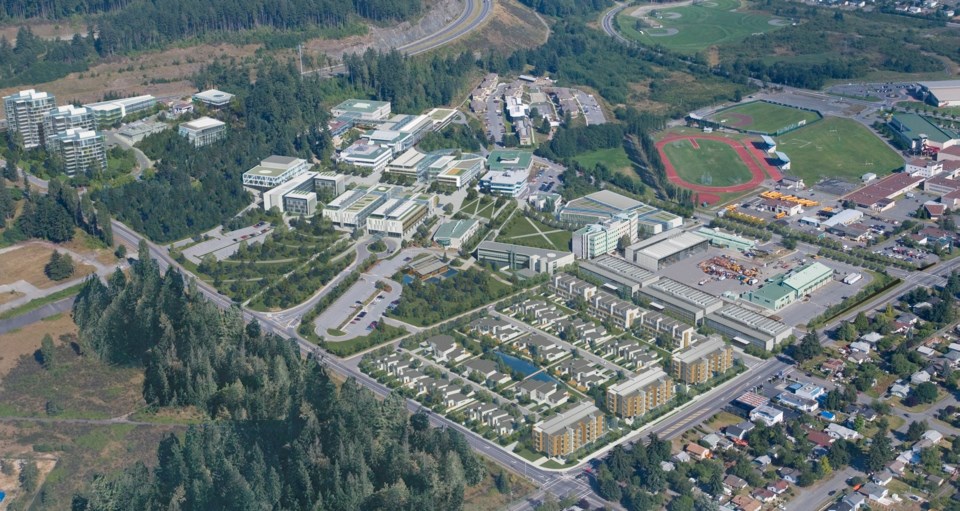Vancouver Island University’s Marine, Automotive and Trades Complex is about to expand and the school will get a new energy system thanks to a $22-million injection of funding from the federal and provincial governments.
The expansion of the trades-training complex means there will be room for 128 more students in the automotive, motorcycle, marine and carpentry programs. It includes more than 2,000 square metres of new construction and 629 square metres of renovations.
Ralph Nilson, president of Vancouver Island University, said the new complex will enhance training, spur innovation and prepare students for the in-demand jobs of today and in the future.
“This, along with the District Geo-Exchange Energy System, will support VIU’s community sustainability mandate, allowing the university to reduce its carbon footprint and engage in research and innovation in this important area,” he said.
Navdeep Bains, federal Minister of Innovation, called the investment a historic downpayment on the vision to position Canada as a global centre for innovation.
“That means making Canada a world leader in turning ideas into solutions, science into technologies, skills into jobs and start-up companies into global successes,” he said.
The project is designed to improve and expand training spaces for trades programs that align with the needs of industries and employers.
The $20-million expansion will also add an “Acceleration Discovery” space, where faculty, students and industry can come together and focus on research and innovation, ensuring programs stay relevant and responsive to industry needs.
The $2.4-million energy system is expected to reduce the carbon output for heating and cooling at the school’s Nanaimo campus by tapping into geothermal energy.
Construction is expected to get underway in early 2017 and be substantially complete by spring 2018.



